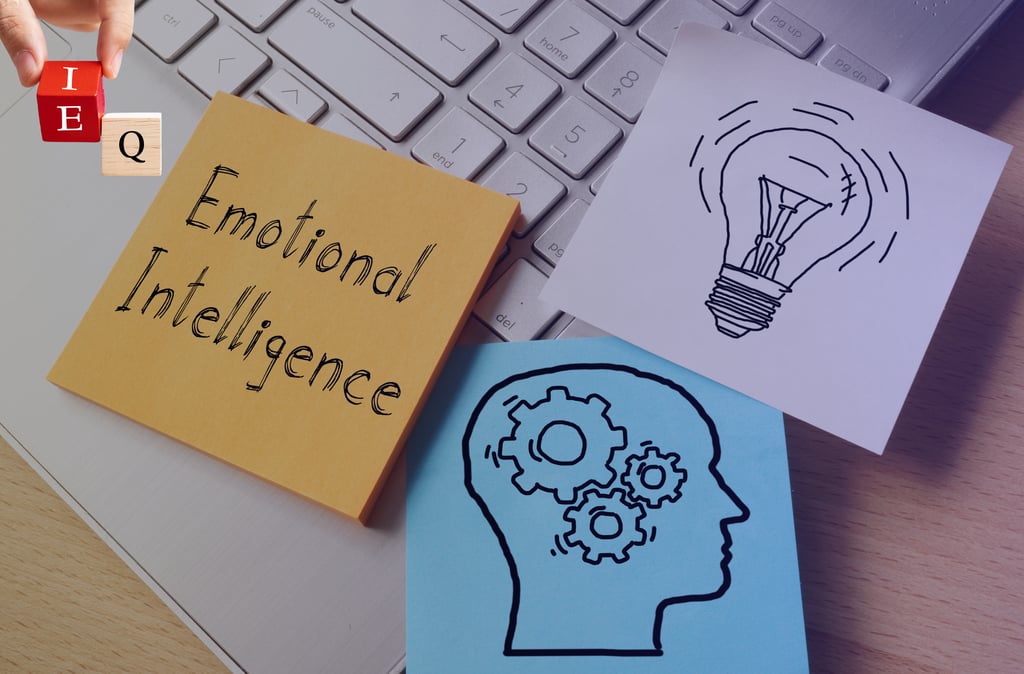Your Next Chapter Starts Here
The Role of Emotional Intelligence in Recruitment
10/9/20252 min read


Recruitment is often seen as a numbers game — CVs reviewed, interviews conducted, offers made. Yet, beneath the processes and technologies lies a critical human factor that shapes hiring decisions: emotional intelligence (EI).
More than technical skills or qualifications, emotional intelligence helps recruiters and employers connect with candidates, assess cultural alignment, and foster lasting professional relationships. In today’s workplace, where collaboration and adaptability are essential, EI is becoming one of the most valuable tools in recruitment.
Understanding Emotional Intelligence
Emotional intelligence is the ability to recognise, understand, and manage one’s own emotions, as well as to perceive and respond to the emotions of others. For recruiters, it means:
Listening beyond words during interviews.
Noticing subtle cues in behaviour and communication.
Building trust and rapport with candidates.
Balancing empathy with objectivity.
When applied thoughtfully, EI transforms the recruitment experience into one that feels more personalised, transparent, and fair.
Why Emotional Intelligence Matters in Recruitment
1. Better Candidate Experience
Candidates often remember how they were treated more than the outcome of an interview. Recruiters who demonstrate empathy and understanding create a positive impression that reflects well on the employer brand.
2. Stronger Assessment of Fit
CVs showcase skills and experience, but emotional intelligence helps recruiters determine if a candidate’s values, attitude, and interpersonal style align with the organisation’s environment.
3. Handling Difficult Conversations
From delivering constructive feedback to negotiating offers, emotionally intelligent recruiters manage challenging discussions with sensitivity, reducing misunderstandings and preserving relationships.
4. Enhanced Collaboration with Hiring Managers
Recruitment is rarely a solo effort. EI enables recruiters to communicate effectively with stakeholders, resolve conflicts, and ensure alignment on hiring objectives.
Developing Emotional Intelligence in Recruitment
Like any skill, emotional intelligence can be nurtured. Recruiters can strengthen EI by:
Active Listening: Paying attention to tone, body language, and context, not just words.
Self-Awareness: Reflecting on one’s own biases, reactions, and decision-making processes.
Empathy Practice: Considering the candidate’s perspective and responding with genuine understanding.
Continuous Learning: Attending training sessions on communication, psychology, and leadership.
The more recruiters invest in these skills, the more effective they become in making well-rounded hiring decisions.
The Competitive Edge
In a market where top talent has choices, emotional intelligence offers a competitive advantage. It allows organisations to stand out not just for their roles or benefits but for the quality of human interaction throughout the hiring process. Recruiters who lead with EI don’t just fill positions — they create connections that support long-term success.
Conclusion
Recruitment is more than a transactional process. It is a human interaction that shapes careers and organisations alike. Emotional intelligence ensures that recruitment is not just about finding someone who can do the job but about identifying someone who can thrive in the role and contribute meaningfully to the team.
As businesses look ahead, those who integrate emotional intelligence into their recruitment strategy will be best placed to attract, engage, and retain the right people.
AMR Global
Global leaders trust our search and selection expertise.
Reach out to us on
+44 7709 869 000
AMR Global © 2025. All rights reserved.


